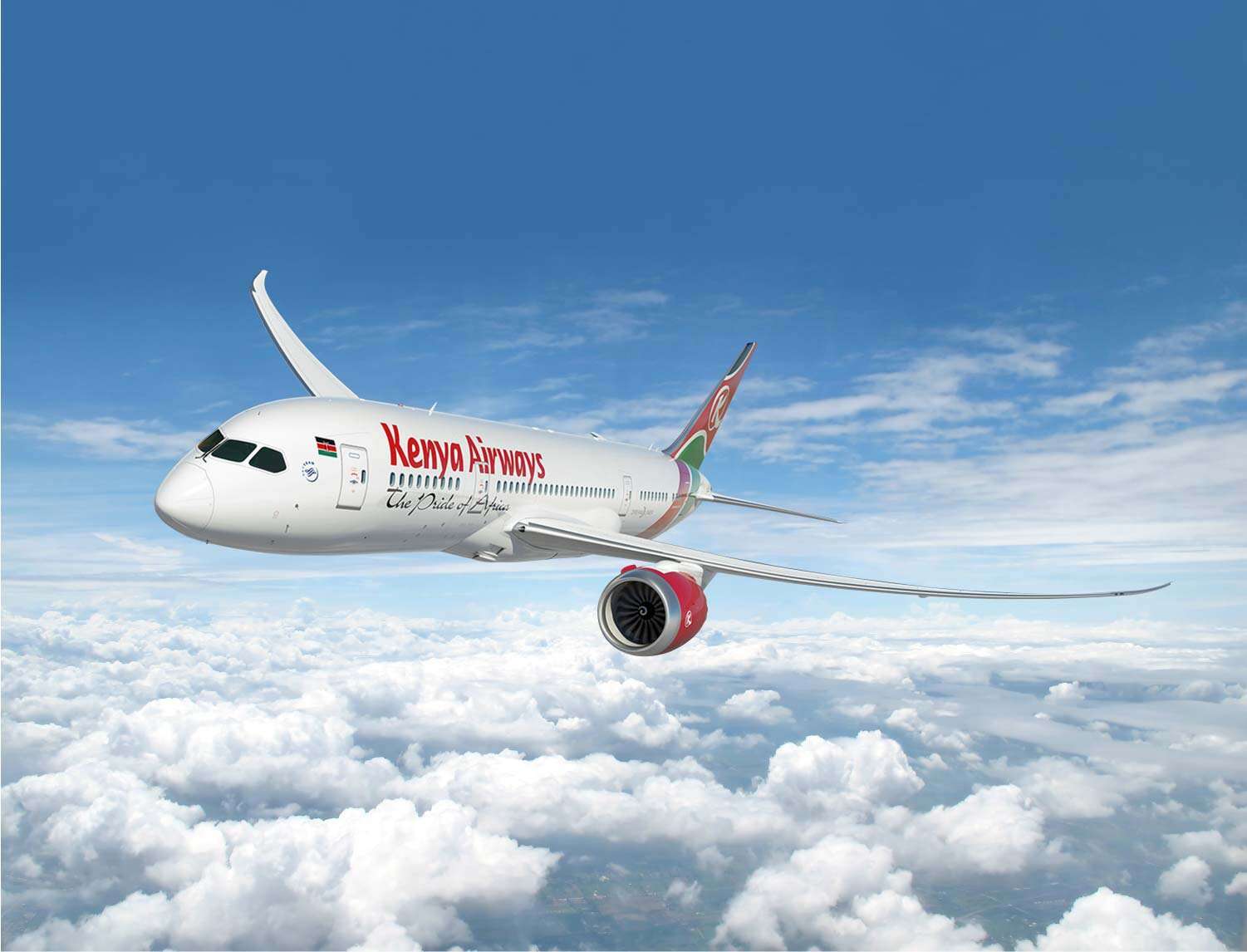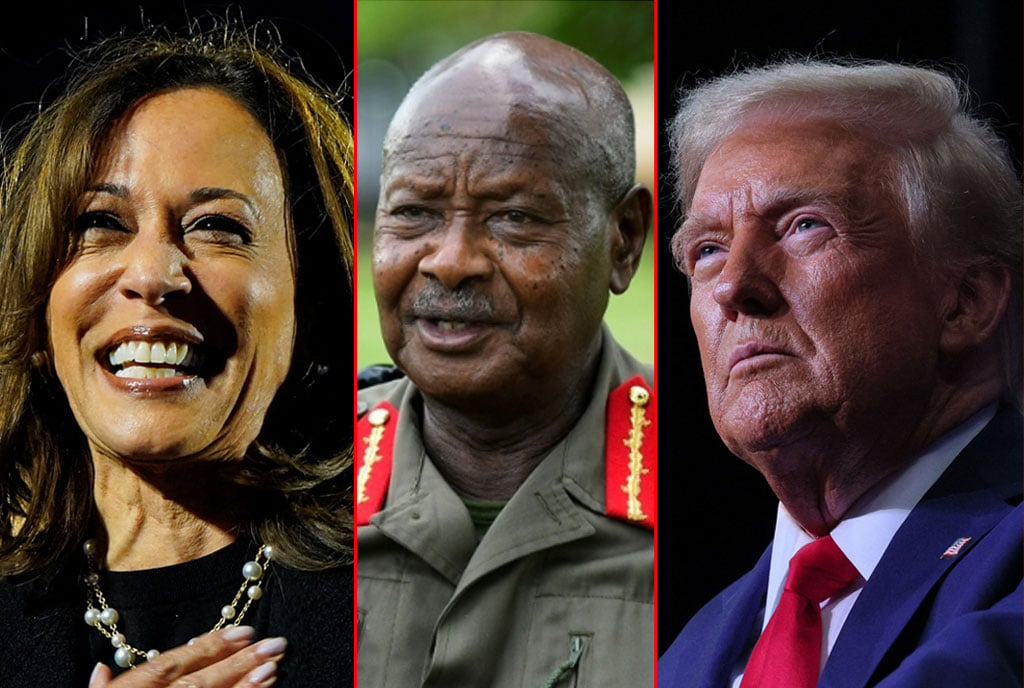
Nyege Nyege festival-goers wave flags of Tanzania and Kenya at the Itanda Falls in Jinja, Uganda. Kenyans and Tanzanians often engage in witty insults on social media platforms, sometimes over very weighty matters.
Kenya and Tanzania have a strong love-hate relationship, often swaying from banter—playful insults and witty comebacks—to serious quarrels.
The citizens of the two East African neighbours have over the years engaged in verbal jousting, especially in sports, that has often trended globally. But the banter goes beyond sports, often veering into witty commentary of serious social, economic, political and diplomatic matters.
When it is not light teasing about language proficiency and football-induced heartaches, they are exchanging strong words on weighty issues such as border disputes, flights and confiscated livestock.
Citizens of the two countries were at it last week when Taifa Stars, Tanzania’s men’s football team, were walloped by the Atlas Lions of Morocco during the ongoing African Cup of Nations (Afcon) in Ivory Coast.
Many Kenyan football fans took to social media to celebrate the defeat of Taifa Stars, who were handed a three-nil thrashing in the opening game of Group F. One X user suggested that Tanzanians should have been hired to entertain fans with their captivating bongo music instead of sending a football team to Ivory Coast only to be ashamed.
Some went ahead to say that the aeroplane used to take the team to Ivory Coast should not have its engine switched off as it was only a matter of time before they were eliminated.
Taifa Leo, Kenya’s premier Kiswahili publication, had set the tone: “Wakenya kutazama Tanzania ikihangaika huko Afcon kupitia KBC bila malipo (Kenyans to watch Tanzania as it struggles at Afcon via KBC free of charge)”.
But as they say, good banter is like a symphony of clever remarks and responses, and so Tanzanians dished out as much as they received.
One Tanzanian hit back, saying Kenyans are just jealous because they failed to qualify for Afcon since one cannot play football on an empty stomach, a mockery of Kenya’s current struggles with hard economic times. Another one went harder, joking that the only thing Kenyans know how to do is to hold demonstration over the price of unga (maize flour).
In 2019, Harambee Stars twice came from behind to beat Tanzania 3-2 during that year’s Afcon, eliminating their neighbours from the competition in the process.
In the aftermath, fans from both countries traded a deluge of barbs, with Kenyans celebrating their neighbour’s downfall.
Following a nationwide blackout that even affected the Jomo Kenyatta International Airport, a cheeky Tanzanian wrote on X: “Jirani hana umeme, hana unga, anaongea tu kiingereza kwa giza (Our neighbour does not have electricity or maize flour, he’s just speaking English in the dark).”
Tanzanians pride themselves in speaking proper Swahili while their Kenyan counterparts boast of having an excellent grasp of the English language, and they mock each other for their poor grasp of the language they are weak in.
This played out during an Agriculture and Food summit in Tanzania in September last year when President Suluhu chided her Kenyan counterpart for not using proper greetings in Swahili. “The other day [President William] Ruto came here and taught us to say ‘jambo’, but the real thing is ‘habari ya mchana’. Kenyans are quite a funny lot, they refer to signing a contract as ‘kuweka kidole. These Kenyans…we need to sign them up for Swahili lessons,” she said in Swahili.
But Kenyan CNN correspondent Larry Madowo, who was hosting the forum, came to the defence of President Ruto.
“I must defend my president ... because Kenyans and Tanzanians are brothers, we talk to Tanzanians in bad Swahili and Tanzanians respond to us in bad English, we go on like that, like it’s the gospel,” he said.
Preceding the latest football banter, the two countries had just come out of a serious diplomatic spat involving suspension of flights between them. Nairobi instigated the fight by denying Dodoma’s request to have its national carrier make cargo flights from Kenya to other countries. In response, Tanzania announced that it was suspending Kenya Airways flights to its commercial capital Dar es Salaam.
However, Kenya moved swiftly to resolve the spat perhaps realising that it stood to lose more, with KQ operating 33 scheduled flights per week between Nairobi and Dar es Salaam.
Although Kenya has many neighbours, it is always a different ball game when it comes to Tanzania, with frequent Nairobi-Dodoma squabbles being the order of the day. Luckily, they are always resolved amicably.
The two countries have an age-old adversarial history, dating back to 1960s, over the different ideological paths they chose after independence.
While Tanzania went the socialist way with their founding President Mwalimu Julius Nyerere, Kenya chose the capitalist route with Jomo Kenyatta. The decisions saw Tanzania refer to Kenya as a man-eat-man society Kenya termed Tanzania a man-eat-nothing society.
Tanzanians have rarely hidden their dislike for Kenyans over perceived aloofness and arrogance. Kenya is far out the leading East African economy, but Tanzania is beginning catch up, buoyed by an infrastructure boom and a flourishing economy. Last year, in April, the International Monetary Fund projected that the Tanzanian economy would be larger than Kenya’s within the next decade.
A move by former Tanzania President John Magufuli’s government aptly illustrates the economic rivalry. In 2017, the Tanzania government had 6,400 live chicks from Kenya burnt and cows confiscated.
Later Kenya closed crossing points with Tanznaia to all human traffic. Tanzania responded by barring all cargo trucks from Kenya from entering the country, leading to a crisis at the Namanga border, with long lines of lorries forming on both sides. Leaders from the two countries later engaged and resolved the issue.
But t is not always fighting, sometimes, the countries engage in good neighbourliness. For example, in July 2019, Kenya returned to Tanzania 35.3kg of gold worth over Sh100 million, and Sh15 million in cash that had been seized from a suspect at the Jomo Kenyatta International Airport in February 2018.
The money and the gold had been stolen on May 21, 2004 from Tanzania’s NBC bank in Moshi. A total of $77,500, Sh171,600,000 and Tsh170,000,000 was grabbed from the bank as staffers were locked up in a safe.
The consignment was received by Magufuli who praised Kenya’s efforts in fighting illegal trade. Among those in the delegation to return the loot was then Foreign Affairs Cabinet Secretary Monica Juma.
Magufuli and then Kenya President Uhuru Kenyatta spoke on telephone. The Tanzanian leader praised Ms Juma and jokingly asked Mr Kenyatta to let Tanzania have her. But Mr Kenyatta declined, saying he would offer him someone else but not the Foreign Affairs CS.
In appreciation of the gesture, on August 2019, Magufuli gifted Mr Kenyatta four peacocks “as a sign of deep respect and appreciation for the Kenyan leader”. Then Tanzania High Commissioner to Kenya Pindi Hazara Chana delivered the birds to State House, Nairobi.
A statement by the then Presidential Strategic Communication Unit explained the birds were gifted to Mr Kenyatta by his host during a private visit to Tanzania.
“On my own behalf and on behalf of the people of Kenya, I receive this special gift. This is in the spirit of brotherhood and friendship of the East African residents,” Mr Kenyatta said at the time.
“It’s a great honour not only between us as presidents but as the people of East Africa. This deep relationship and brotherhood should continue so as to benefit our current and future generations,” he added.
Kenyan and Tanzania share land and water borders as well as ecology with wildebeests’ migration one of the marvels. The animals come to get pregnant in Kenya and deliver in Tanzania, and vice versa.
After Magufuli, the light and heavy exchanges continued with President Samia Suluhu.
At the height of the Azimio la Umoja One Kenya anti-government protests in July last year, President Suluhu derided Kenya’s instability, saying investors are fleeing the country and trooping to Tanzania.
“Kati ya mwezi wa May na Juni, tumepokea wawekezaji wengi mno. Lakini ukitizama sababu ni nini? Sababu ni kwamba kwa jirani kunawaka moto (Between May and June, we received many investors like never before. As you can see, the reason is that the neighbour’s home is on “fire”),” she said.
Four months earlier, she had taken a swipe at Kenya saying her country has the best-performing economy in East Africa. She said Kenya does not have forex reserves to last a week and has been seeking the help of Tanzania with the dollar to import petroleum products.
“We are at a better place compared to our neighbours. Their dollar reserves cannot last a week, our reserves can push us for four months. They are here begging us for guarantees so that they can buy fuel,” she said.
Ms Suluhu’s remarks came weeks after Kenya’s Treasury CS Njuguna Ndung’u said commercial banks in Kenya had run out of dollars and had resorted to borrowing from Tanzania. The Central Bank of Kenya had directed commercial banks to ration dollars following a shortage and to protect reserves.






